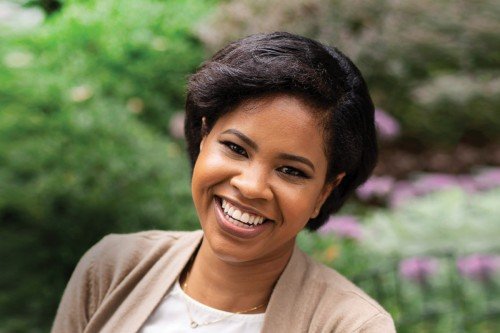Caught Between Two Worlds: How MSK is Connecting to Young People with Cancer
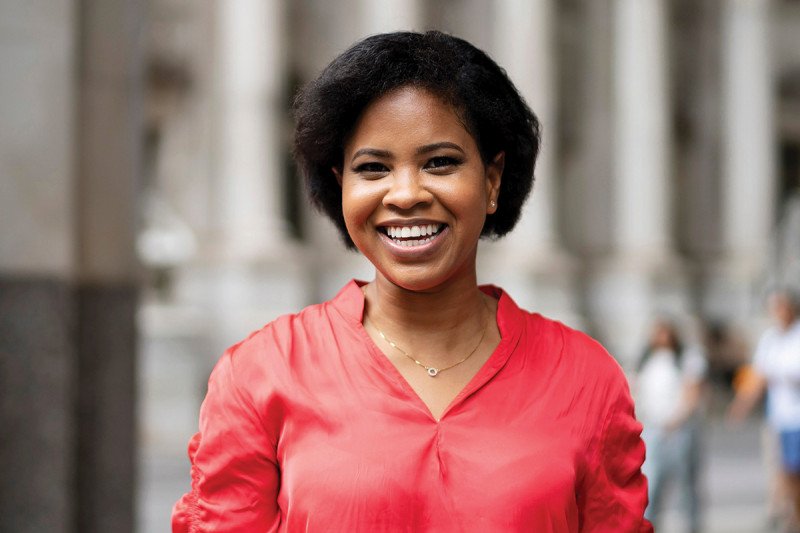
Before she was diagnosed with cancer in 2020 at age 31, Desiree Allen was living her best life.
“I was in school part-time and working full-time, and I was — and still am — in a long-term relationship,” says the cardiology nurse, now 32. “As a matter of fact, I was having the time of my life.”
Then she noticed a smooth bump on her knee, but her primary care doctor dismissed it. Cancer is rarely suspected in young people.
“He said, ‘Maybe you’re on your feet too much. Just relax and take aspirin,’” she recalls. “But my gut instinct knew that wasn’t right.”
As a nurse, Desiree knew how to advocate for an MRI, which found a mass. A biopsy revealed Desiree had a cancer of the muscles in her knee known as embryonal rhabdomyosarcoma. Sarcomas are cancers of the muscles and bones.
“The doctors were shocked because it was, like, a one in a million chance,” she says, adding after a pause: “I didn’t want to be this kind of special.”

When a young person is diagnosed with cancer, they can feel lost — too old for pediatrics but decades younger than most cancer patients. In a recent bestselling memoir, Between Two Kingdoms, former Memorial Sloan Kettering Cancer Center patient Suleika Jaouad writes about learning from her doctor, at the age of 22, that she had a rare leukemia. “It felt as if he were standing over me with a scalpel, cleaving my life by diagnosis, bifurcating my psyche into separate selves: half of me dancing with a mariachi singer after tequila shots … making my friends whistle and cheer; half of me crying every night in a sterile hospital room after the visitors had gone home.”
Helping Young People Navigate Cancer
The unfortunate reality is that recent advances in treatment have not benefited this age group as much as they have others. A key reason: Teens and young adults often don’t have the right kind of support — beyond their families — to get them through the gauntlet of chemotherapy, surgery, and radiation. It’s grueling for anyone — especially for people just learning how to live on their own.
These young people are often facing the usual experiences and challenges their stage of life entails — going off to college, looking for a job, striving for a promotion, going to parties, finding love, and building a family — when cancer upends everything. They often struggle to even imagine a future; they feel stuck, yet they have no choice but to grow up fast.
Supporting these patients so that they not only survive cancer but also live a life beyond it is the reason that MSK created its Adolescent and Young Adult (AYA) program. Researchers from across the institution come together to identify best practices, clinical trial opportunities, and support services for this age group. Now a generous gift will dramatically expand the effort through the Lisa and Scott Stuart Center for Adolescent and Young Adult Cancers.
The mission is about more than medical research — it also considers the major milestones young adults experience in their teens, 20s, and 30s.
“It’s such a time of change in anyone’s life, and then to add a medical diagnosis on top of that — it’s even more overwhelming,” says Rachel Marks, Senior Coordinator of the Stuart Center. “You are so much more than your diagnosis.”
Working alongside a patient’s primary team, designated nurses and staff are available to meet with patients being treated throughout MSK.
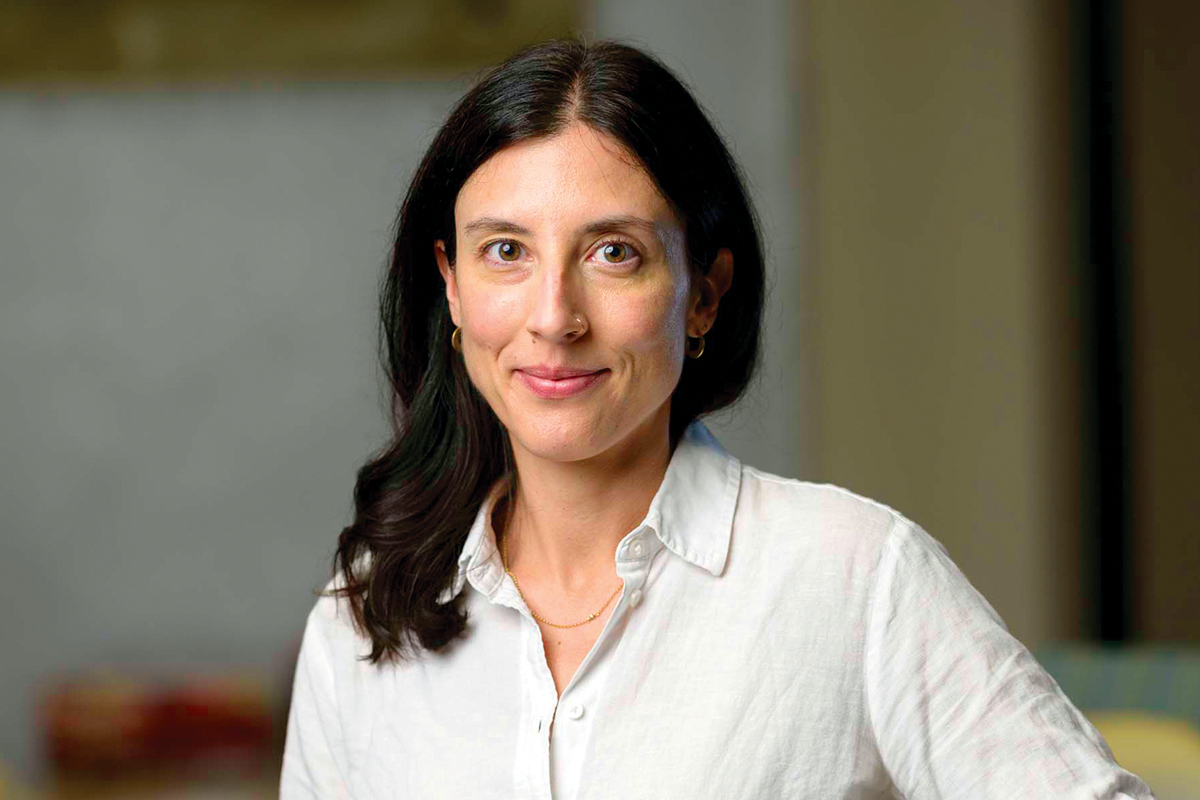
Social worker Alexandra Russo asks her patients what’s going on in their lives, and then gets them the support they need. Her team may help with college and job searches, link a patient with a fertility specialist, or just be there to lend an ear. They also teach patients coping skills and offer guidance on talking about their illness with friends and family. Of critical importance is following the patient’s lead.
“It’s about joining with the patient, being really present with them, and starting where they are,” Ms. Russo says.
Understanding that young people need to feel autonomy, nurse practitioner Emily Sarro recommends asking parents to step outside the room so that patients can share their feelings in private. “This is key in creating a trusting relationship with patients and making sure their voices and priorities are heard,” Ms. Sarro says.
MSK is revolutionizing the way cancer is diagnosed and treated. Learn more about how your generosity makes this possible.
This support follows them through their journey — in Desiree’s case this meant being treated by pediatric specialists, because her type of sarcoma is more common in children. She had six months of chemotherapy administered by pediatric hematologist and oncologist Leonard Wexler. Then pediatric surgeon Daniel Prince removed the tumor in her leg.
“I call him my Prince Charming,” Desiree says with a chuckle. Dr. Prince specializes in orthopedic surgery for children, adolescents, and young adults, making him an ideal specialist for Desiree’s unique circumstances.
Of equal importance as the medical care were the frequent check-ins to discuss career planning, fertility, and other topics important to Desiree. She built strong relationships with her providers, calling nurse practitioner Ms. Sarro her “unofficial official bestie” and social worker Ms. Russo her “professional bestie.”
“They would literally call just to say, ‘How are you?’” Desiree says. “There were no strings attached, no ‘are your meds okay?’ conversations. It was like when your best friend calls. I could be myself.”
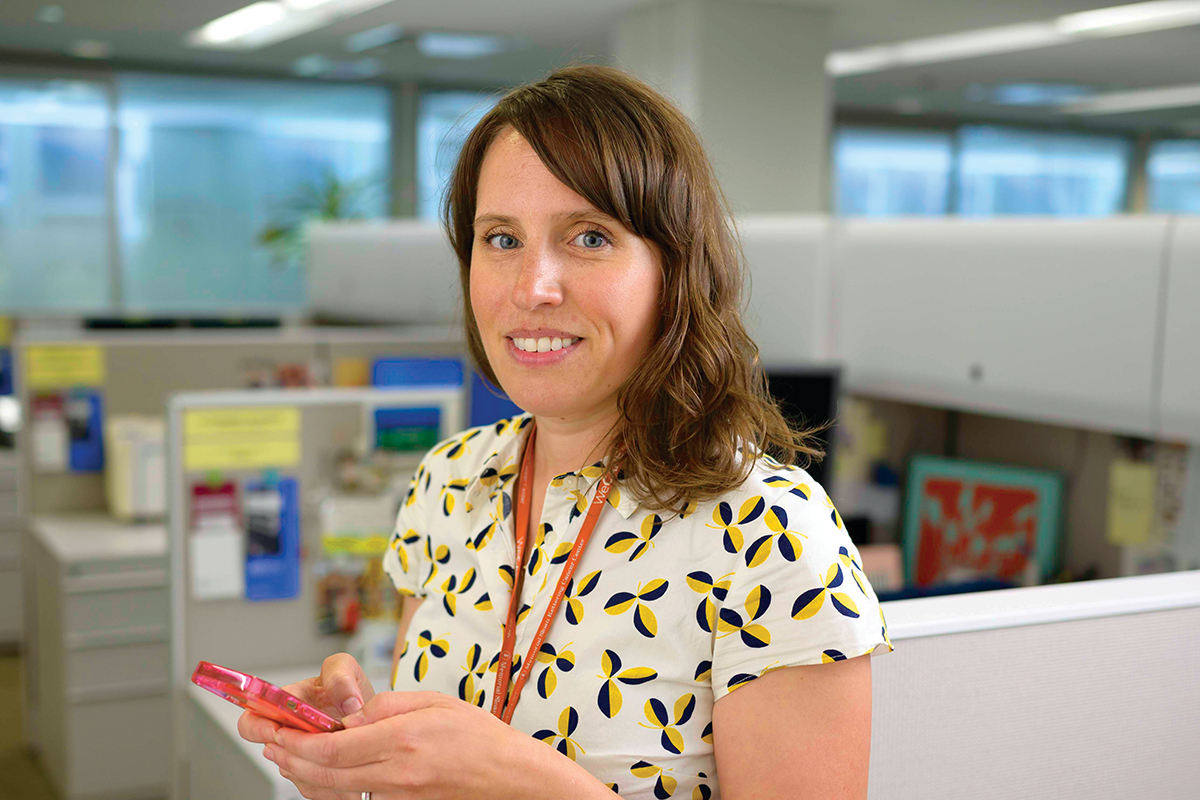
The Digital Connection
To reach a generation living on its smartphones, the Stuart Center harnesses technology in new ways — teaching, treating, and supporting patients through the use of apps, social media, telemedicine, and more. Desiree often has virtual appointments.
“Just knowing that my team is a phone call away and seeing them and hearing them from my living room — without masks — adds a layer of physical and emotional well-being,” she says.
MSK also recently connected Desiree with a 31-year-old fellow sarcoma patient, and they’ve developed a friendship over text.
“Sometimes you really need to see that validation, to know that ‘I’m different, but you did it, and maybe I, too, can do this,’” says Desiree.
Teens and young adults also find community online. MSK’s Lounge App has become a popular and powerful way to share their experiences, especially when The Lounge’s physical hangout in the main hospital shut down during the COVID-19 pandemic.
Social media and technology are also used for research. MSK senior research specialist Bridgette Thom is recruiting a vast range of patients — from teens to those in their late 30s — via Facebook, Twitter, and other outlets to conduct research. The objective is to identify the social and financial issues they face in order to better help them navigate their care.
“I am struck by how willing they are to share and tell their stories to give back to the AYA cancer community,” says Dr. Thom.
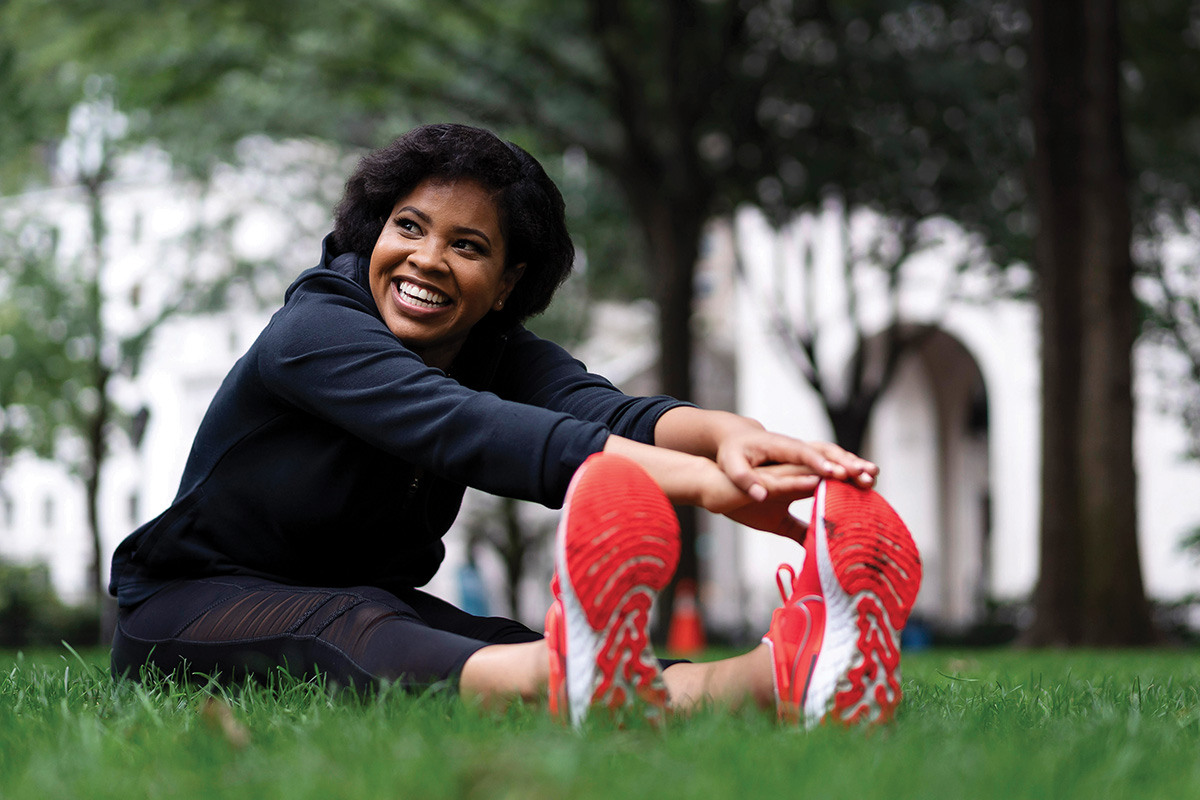
Desiree is back to living her best life. Her last round of chemotherapy was about a year ago, and her most recent scan in April showed no evidence of disease.
“I’m not just alive; I’m living.”
She has returned to school, work, and vigorous exercise. She is especially enjoying time with her boyfriend, who stood by her side through the ordeal. Desiree is also pursuing a post-master’s certificate in oncology, with the dream of one day returning to MSK in a professional role.
“I will not rest until I work at MSK!” she says. “They’re probably sick of me saying thank you. The gratitude I feel is so deep. I’m not just alive; I’m living.”
